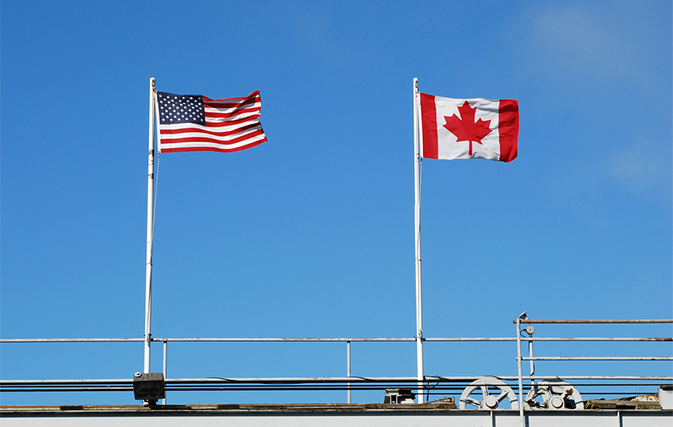OTTAWA — The Trudeau government is stepping up the exchange of traveller information with the United States to help catch social-benefit cheats, better track suspected terrorists, and identify people who remain in Canada past visa-expiration dates.
The government introduced legislation Wednesday to implement the final phases of the data-collection system, which is two years behind schedule, with the aim of saving tens of millions of dollars annually.
Under the 2011 perimeter security pact, Canada and the United States agreed to set up co-ordinated systems to track the entry and exit information of travellers.
For the moment, the system involves exchanging entry information collected from people at the land border — so that data on entry to one country serves as a record of exit from the other.
The first two phases of the program have been limited to foreign nationals and permanent residents of Canada and the U.S., but not citizens of either country.
Under the new legislation, the initiative would be expanded to include information-sharing on all travellers crossing the land border.
The data includes the traveller’s name, nationality, date of birth and gender as well as the country that issued their travel document.
In addition, Canada plans to begin collecting information on people leaving by plane — something the United States already does — by requiring airlines to submit passenger manifest data for outbound international flights.
It might come as a surprise to a great many Canadians that this doesn’t happen already, said Public Safety Minister Ralph Goodale. We collect a lot of information, of course, when anyone arrives in Canada, but not when they leave.
That has left a considerable hole in Canada’s security and administrative framework that needs to be fixed, he said.
The government says the information will help officials:
— Track the departure plans of known high-risk travellers such as fugitives, suspected terrorists, registered sex offenders, smugglers and exporters of illegal goods;
— Respond more effectively to missing-child alerts;
— Identify people who overstay their authorized time in Canada;
— Focus immigration enforcement on people in Canada as opposed to those who have already left;
— Verify whether people have complied with residency requirements as well as determine their entitlement to social benefits, which may require a presence in Canada.
Where there is fraud, where payments are being obtained in ways that are not justified or approved by the programs themselves, then taxpayers would expect that the program terms and conditions will in fact be enforced, Goodale said.
Memos obtained last year under the Access to Information Act said the Canada Revenue Agency and Employment and Social Development Canada expected to save between about $194 million and $319 million over five years once the long-anticipated system was fully in place.
Canada would retain the information collected for 15 years.
Federal officials have been trying to satisfy privacy commissioner Daniel Therrien’s office that personal information will be properly collected, used and disclosed under the program.
Privacy is always a crucial consideration, Goodale said.
We will respond to all the advice, all the recommendations that the privacy commissioner makes along the way.
